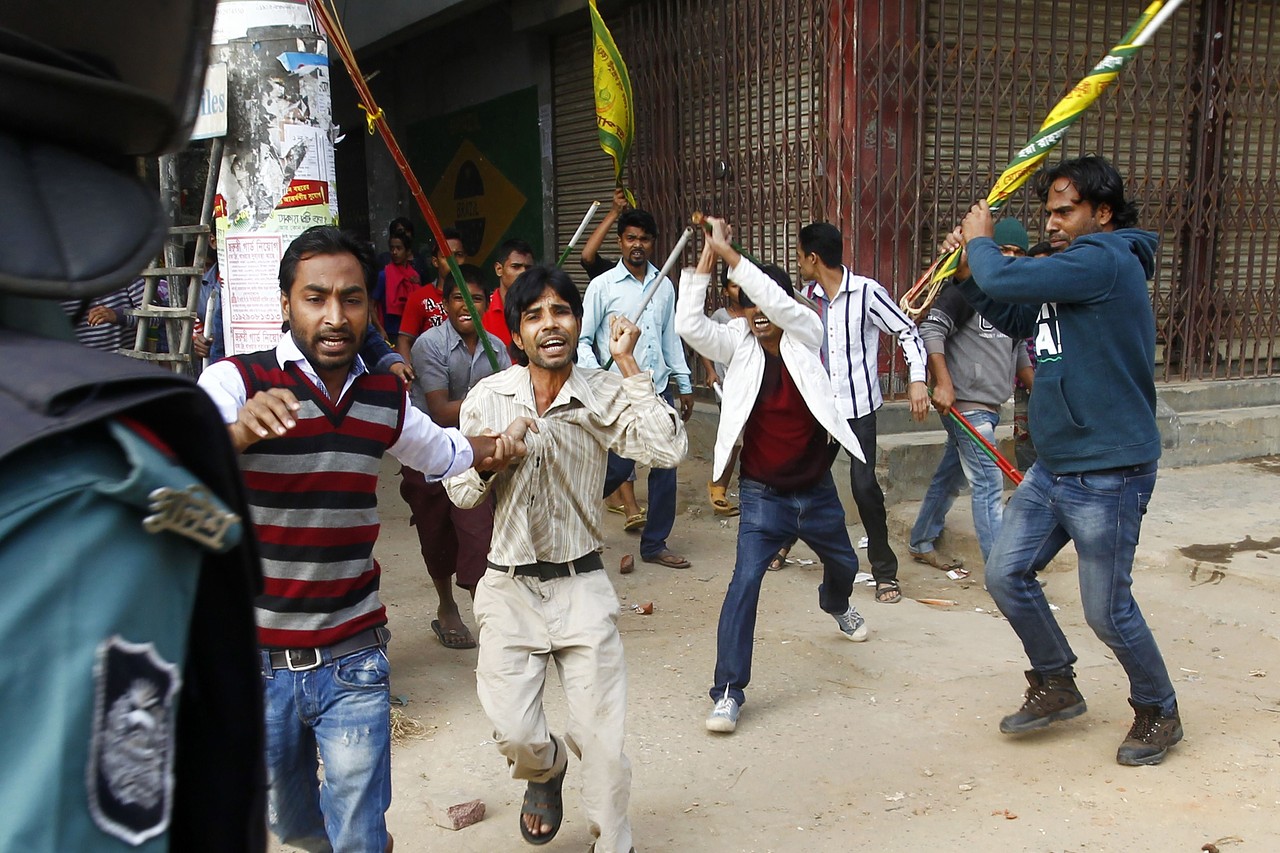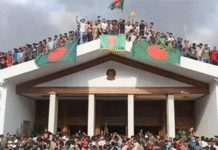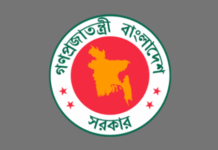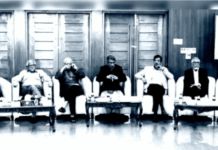By SYED ZAIN AL-MAHMOOD

DHAKA, Bangladesh—At least four people were killed and dozens injured across Bangladesh on Monday, police and protesters said, as opposition supporters clashed with police and ruling-party activists on the anniversary of last year’s divisive parliamentary elections.
The deadly clashes erupted after police banned protests in the capital, Dhaka, and confined opposition leader Khaleda Zia to her office for a second day.
Ms. Zia’s Bangladesh Nationalist Party and its allies had called for mass protests Monday to mark what they call “Democracy Killing Day,” the anniversary of elections held Jan. 5, 2014, which were swept by Prime Minister Sheikh Hasina ’s Awami League after an opposition boycott.
The BNP said at the time that Ms. Hasina was using her control over the administration to give her party an unfair edge in the polls. She denied the allegations.
Police locked the main gate and fired what appeared to be pepper spray into Ms. Zia’s office compound in Dhaka’s upscale Gulshan neighborhood as she and her entourage tried to force their way through police lines to join a protest on Monday afternoon.
“The government has laid siege to my office, the whole country is besieged,” Ms. Zia said, speaking to reporters in her compound. “The government is afraid and that is why they’re trying to deny our right to protest.”
Coughing from the spray, the 69-year-old former prime minister accused the ruling Awami League of “establishing one-party rule in the guise of democracy.” She called on the government to call early elections in which “all parties can participate on equal terms.”
The government denies that it is detaining Ms. Zia. Speaking on television, Ms. Hasina said the government had provided “enhanced security” in response to a request from Ms. Zia. “She can go home any time she wants,” Ms. Hasina said.
Senior police officers said Ms. Zia hasn’t been placed under house arrest. They declined to comment on police tactics.
“We have increased security for her own protection,” said Munirul Islam, a police spokesman.
Aides to Ms. Zia said the government was unlawfully preventing her from leading the protest rallies.
Ms. Zia spent a second night in her office Sunday after police barricaded the road in front of the office with trucks loaded with sand. Activists supporting Ms. Zia’s Bangladesh Nationalist Party clashed with police and at one stage lay down on the road to prevent police from dragging them away. At least a dozen party members were detained, according to police.
On Monday evening, Ms. Zia was still there. Several hundred armed policemen maintained a security cordon in front of Ms. Zia’s office in Gulshan. At least 10 sand-laden trucks, along with police vans and armored personnel carriers, blocked the road.
“This is an authoritarian move that undermines democracy,” said Badruddoza Chowdhury, a former president and opposition political leader. Mr. Chowdhury said he had attempted to meet Ms. Zia and was turned away by police.

Four opposition activists were killed in the north of the country as clashes between opposition supporters, ruling party members and police spread on Monday. Police confirmed the deaths and said they had been acting to contain the violence. Local opposition leaders accused the police of siding with the ruling party and opening fire on opposition supporters, something the police denied.
Long-distance buses, trains and boats to the capital were halted, virtually cutting Dhaka off from the rest of the country. Owners of some transportation services said the administration had put pressure on them to stop services, because of fears that tens of thousands of protesters might march on the capital.
The police denied putting pressure on owners, suggesting the fear of vandalism had kept vehicles off the road.
Last week, Ms. Zia put forward fresh proposals calling for early elections and calling on the government to release political prisoners. The government rejected the proposals. Mahbubul Alam Hanif, a spokesman for the ruling Awami League, said last week that the opposition was trying to create anarchy.
Human-rights groups criticized the government last year for confining Ms. Zia to her house in the run-up to the elections. The government said it was trying to prevent violence.
Source: Wall Street Journal









